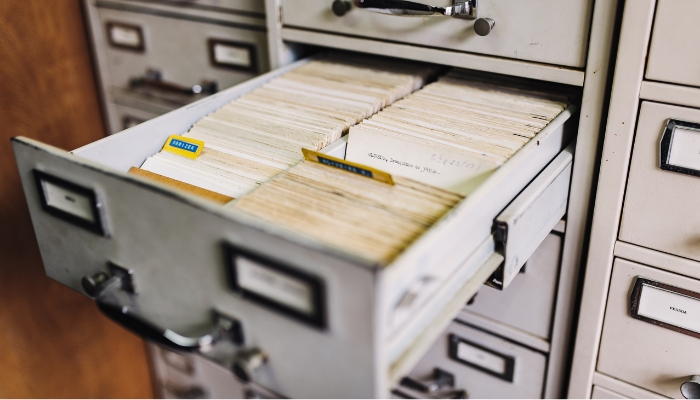
Like a window into a home’s past, eviction records can reveal a lot about a property and its previous occupants. If you’re in New Jersey, you have the right to access these records under the state’s Public Records Law. You can use this guide to navigate the process of look up eviction records in new jersey.
To look up eviction records in New Jersey, visit local courthouses or use online court databases. This is important for legal purposes or for landlords and tenants seeking information on past eviction cases.
It’ll help you understand what you’re finding, where to look for it, and how to interpret the results. This isn’t a task to be taken lightly, but with the right approach, you’ll be able to unlock a wealth of information about your potential new home.
Understanding Eviction Records in New Jersey
Before diving into how to look up eviction records in new jersey, it’s crucial you understand what eviction records in New Jersey entail. Eviction records are public records that detail any eviction proceedings that have taken place regarding a particular property or tenant.
This is true for New Jersey, and if you’re looking to look up eviction records in New York, you’ll find similar public access with state-specific nuances. This information is crucial for property owners, as it can provide a comprehensive picture of a potential tenant’s rental history.
In New Jersey, eviction records are maintained by the Superior Court of New Jersey Law Division, Special Civil Part, Landlord-Tenant section. These records are accessible through the municipal court in the county where the property is located. It’s important to note that eviction records don’t necessarily indicate a tenant was evicted. They simply show that an eviction process was initiated.
New Jersey’s Public Records Law
Under New Jersey’s Public Records Law, you have the right to access eviction records, among other types of public information. In contrast, if you were to look up eviction records in New Mexico, you might encounter different regulations and processes. This law upholds your right to know by ensuring public access to government records. An eviction search in New Jersey can be done either online or physically, by visiting the superior court in the county where the eviction occurred.
The steps to access these records are straightforward. Here’s a simplified list for your convenience:
- Complete an online record search on the New Jersey Courts Public Access web page.
- Visit the Superior Court in person, if you prefer a more hands-on approach.
- Submit a request in writing to the record custodian of the Superior Court.
How to Access Eviction Records in New Jersey?

Accessing eviction records in New Jersey can be a straightforward process if you know where to look and what steps to follow. In contrast, if you need to look up eviction records in North Carolina, you might encounter different steps and resources. Whether you’re a landlord, tenant, or just doing some research, understanding how to navigate through various legal and governmental channels is key. Here’s a step-by-step guide to help you in your search.
Step 1: Understand What Eviction Records Are
Eviction records are public documents that detail the process and outcome of a landlord legally removing a tenant from their property. These records can include information about the eviction reason, the court’s decision, and any public records related to the case.
Step 2: Identify the Correct Court System
In New Jersey, eviction cases are typically handled by the Municipal Court of the area where the property is located. However, some cases might escalate to the Superior Court or even the Appellate Division if there are legal disputes or appeals involved.
Step 3: Online Resources and Government Portals
The New Jersey Courts website is a primary resource for accessing electronic court records. Here, you can utilize the public access to court electronic records service to find specific eviction cases. Additionally, the New Jersey Judiciary Case Search system allows for a detailed record search based on party names or case numbers.
Step 4: Gather Necessary Information
Before you start your search, ensure you have all the necessary information. This includes the full name of the tenant or landlord involved, the address of the rental property, and, if possible, the case or control number of the eviction.
Step 5: Conducting the Eviction Search
Navigate to the eviction search section on the New Jersey Courts website. Enter the details you have gathered. Remember, the more specific your information, the more accurate your search results will be.
Step 6: Visit the Courthouse In Person
If online searches don’t yield results, or you need more detailed records, visiting the Municipal Court or County Court in person can be effective. At the courthouse, you can request to view or obtain copies of eviction records. Be prepared to pay a service charge for copies of these documents.
Step 7: Consider Privacy Laws
While eviction records are public, it’s important to respect the preservation of privacy of individuals involved. Use these records responsibly, especially if you’re a landlord screening potential tenants.
Step 8: Seek Assistance If Needed
If you find the process challenging, consider consulting a housing expert or consumer attorney. They can provide guidance and help you navigate the search process more efficiently.
Step 9: Check for Additional Resources
Some counties, like Burlington County or Atlantic City, might have specific procedures or additional resources for accessing eviction records. Check their local county clerks office or website for more information.
Step 10: Stay Informed About Legal Changes
Laws and procedures can change. Stay informed about any updates in the Superior Court of New Jersey law or municipal ordinances that might affect access to eviction records.
By following these steps, you can effectively search for and access eviction records in New Jersey. Remember to use the information ethically and in compliance with all relevant laws and regulations.
Analyzing Eviction Records: What to Look For

When you access eviction records in New Jersey, understanding what to look for is crucial. These records provide a wealth of information, but it’s important to know how to interpret them correctly. Here’s a guide on what details to focus on and how to differentiate between various types of eviction cases.
Understanding the Details in Eviction Records
- Parties Involved: The record will list the names of the tenant and the landlord. Pay attention to the party names and any additional names that might be involved, like legal representatives or covered persons.
- Case Details: Look for the control number, which is a unique identifier for each case. This number is essential for referencing and tracking the case in the court system.
- Reason for Eviction: Eviction records detail the grounds for eviction, such as non-payment of rent, violation of lease terms, or property damage. Understanding the reason is crucial for assessing the case.
- Court’s Decision: The outcome of the eviction process is a key element. It will tell you whether the eviction was granted or denied and under what terms.
- Legal Proceedings: Note any legal actions taken during the eviction process. This includes civil actions, claims charges, and any adverse action taken by either party.
Differentiating Between Types of Eviction Cases
- Non-Payment of Rent: One of the most common reasons for eviction. In these cases, check if there are records of late payment or payment of rent issues.
- Lease Violation: These cases involve tenants breaking specific lease terms. Look for details about the violated terms and any additional charges or legal actions taken.
- Property Damage: If the eviction is due to damage to the property, the records might include descriptions or assessments of the damage.
- Illegal Activity: Evictions can occur due to illegal activities conducted on the premises. These might be linked with criminal charges or fraudulent activity.
- Holdover Tenants: These cases occur when tenants stay beyond their lease term without the landlord’s consent. The records will show the lease end date and any legal notices served.
- Non-Renewal of Lease: Sometimes, landlords choose not to renew a lease. While this isn’t a traditional eviction, it can appear in records if there was a dispute or legal process involved.
Additional Considerations
- Public vs. Private Records: Some details in eviction records are public, while others might be protected for preservation of privacy. Be aware of what information is publicly accessible.
- Court Jurisdiction: The court handling the eviction (be it Municipal Court, District Court, or Superior Court) can influence the case’s proceedings and outcomes.
- Appeals and Further Actions: Check if there were any appeals to higher courts like the Appellate Division or Circuit Court of Appeals. This indicates a more complex case.
By carefully analyzing eviction records and understanding the nuances of different types of cases, you can gain a comprehensive view of the situation. This analysis is invaluable for landlords in tenant screening, for tenants understanding their rights, and for legal professionals handling housing cases.
Useful Tips for First-Time Users

If you’re delving into eviction records for the first time, it’s crucial to keep a few key tips in mind to streamline the process and ensure you obtain accurate, useful information.
Navigating the maze of civil and county courts, electronic court records, and public access to court electronic records can initially seem overwhelming, but a methodical, detail-oriented approach can greatly simplify the task.
Here are three useful tips to guide your search:
- Start local: New Jersey county courts handle most eviction cases, so they should be your first port of call. These courts’ electronic records often contain a wealth of information about eviction proceedings.
- Understand public access: The Public Access to Court Electronic Records (PACER) system is a federal database that can provide additional insights. However, it’s essential to note that PACER may not include local eviction records.
- Be thorough: Don’t rush the process. Ensure you’ve checked all available databases and understand the specifics of each record you find.
Conclusion
In conclusion, understanding how to search eviction records in New Jersey can be a crucial tool in making informed decisions. Utilizing the state’s Public Records Law, you can navigate the process step-by-step to uncover valuable information.
However, as a first-time user, be mindful of the intricacies involved. With patience and diligence, you can successfully access New Jersey eviction records, leveraging them to your advantage.
FAQs on Eviction Records in New Jersey
How Can I Find Out if Someone Has an Eviction Record in New Jersey?
To find out if someone has an eviction record in New Jersey, you can conduct a record search through the New Jersey Courts’ online portal or visit the local Municipal Court where the eviction would have been filed. You’ll need the individual’s full name and, if possible, other identifying information like the property address or case number.
Are Eviction Records Public in New Jersey?
Yes, eviction records are generally considered public records in New Jersey. This means that they are accessible to the public, and anyone can request to view or obtain copies of these records. However, there might be some restrictions in place to protect the preservation of privacy of the individuals involved.
How Long Do Eviction Records Stay on Public Record in New Jersey?
In New Jersey, eviction records typically remain on public record for up to seven years. However, the exact duration can vary based on the court’s policies and the nature of the eviction case. It’s important to note that even after this period, the records might still be accessible through certain consumer reporting agencies or background check services.